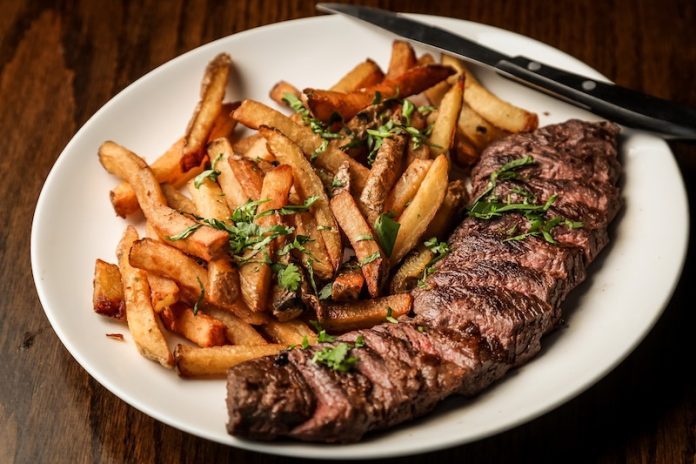
A new study from the University of Oxford suggests that reducing meat intake may lower the overall risk of developing cancer.
The study analyzed data from 472,377 British adults aged between 40 and 70 years and found that eating meat five times or less per week was associated with a reduced cancer risk compared to those who ate meat more than five times per week.
Researchers used data from the UK Biobank, where participants reported their frequency of meat and fish consumption.
Over an average period of 11 years, the researchers calculated the incidence of new cancer cases by consulting health records.
Key Findings
- Overall cancer risk was 2% lower among those who ate meat five times or less per week.
- The risk was 10% lower among those who ate fish but not meat.
- The risk was 14% lower among vegetarians and vegans.
- A 9% lower risk of colorectal cancer was observed among participants who ate meat five times or less per week.
- Men who ate fish but not meat had a 20% lower risk of prostate cancer, and those who followed a vegetarian diet had a 31% lower risk.
- Post-menopausal women following a vegetarian diet had an 18% lower risk of breast cancer. This was attributed to lower BMI in vegetarian women compared to those who ate meat.
Limitations and Future Research
The study has limitations due to its observational nature, which prevents establishing a causal relationship between diet and cancer risk.
Moreover, the dietary data were collected at a single point in time, which may not reflect participants’ lifetime dietary habits.
The authors suggest future studies should focus on individual cancers and involve larger populations with longer follow-up periods.
Implications
While the study doesn’t establish causality, it does highlight potential benefits of reducing meat consumption for cancer prevention.
The researchers suggest that less frequent meat consumption could be beneficial in lowering the risk of several types of cancer, although they caution that further research is needed.
Additional Resources
For those interested in lowering their cancer risk, other studies have investigated the effects of inexpensive drugs and aspirin on cancer treatment and prevention.
Recent studies have also explored the impact of supplements on cancer risk and how COVID-19 booster shots can help people with cancer.
The research was led by Cody Watling and published in the journal BMC Medicine.
Follow us on Twitter for more articles about this topic.
Copyright © 2023 Scientific Diet. All rights reserved.





